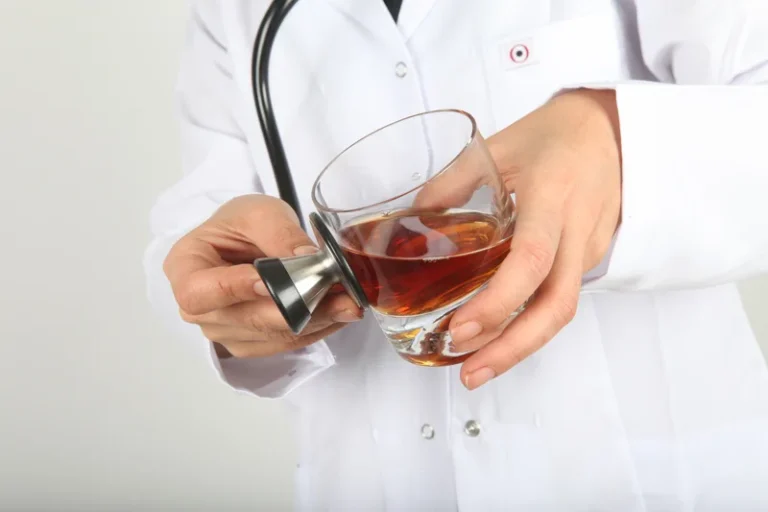
Talk with your healthcare professional before trying any alternative medicine. Your healthcare professional can help you understand possible risks and benefits before you try a treatment. Alcohol can direct heavier blood flow to areas in your pancreas known as islets. This causes your pancreas to make more insulin, which can make your blood sugar drop.

Water vs. Sports Drinks: What’s Best for our Bodies
- Talk with your healthcare professional before trying any alternative medicine.
- The best way to avoid a hangover is not to drink alcohol in the first place, even when it might seem like a good idea at the time.
- Studies show that if you smoke cigarettes while you drink, you may get a worse hangover.
- Dr. Braid describes this as “the perfect drink the day after a big night out.”
- Alcohol has temporary and long term effects on the body.
- Dr. Shafer says hangovers usually resolve within 24 hours.
“Doing so will increase your body’s water content, which will lower your alcohol concentration,” Dr. Bonney says. “It doesn’t counter the absorption of alcohol https://ecosoberhouse.com/ but does slow it down.” “For the majority of our lives, the percentage of our body weight that’s comprised of water is roughly 50 percent,” Dr. Korraa says.
Symptoms of a hangover
“It helps us feel relaxed when drinking, but when we stop drinking the brain tries to recalibrate from the more sedating effects leaving some to feel worked up, anxious and irritable,” she says. Dehydration occurs because alcohol inhibits the effect of a hormone called antidiuretic hormone (ADH). Normally, ADH stimulates the kidneys to reabsorb water from urine to prevent dehydration.
Are Hangovers Dangerous or Just Painful?
- When you feel terrible after drinking too much, it may be the result of both dehydration and an inflammatory response.
- In one small study, taking Phyllanthus amarus extract twice a day for 10 days helped lower blood alcohol levels, ease hangover symptoms, and improve mood in regular drinkers.
- And if alcohol use disorder runs in your family, you may have certain genes that affect the way you process liquor.
- Head to our Just Curious section to see what else we can answer for you.
The fluctuations in blood sugar that accompany drinking can lead to negative moods, which might include anxiety and anger as well as mood instability. Dizziness is a common symptom of the dehydration that comes with a hangover. When you’re dehydrated, your blood pressure drops, which limits blood flow to your brain and causes dizziness. The study also suggested that heart rate increases as you drink more alcohol, and these increases can raise your risk of arrhythmia, an irregular heartbeat.
Binge Drinking and Its Risks

“This combination may contribute to more significant hangover symptoms.” The most important thing to consume while you are recovering from a hangover is liquid, in how long do hangovers last order to avoid further dehydration. Any liquid (except alcohol!) that you find palatable is acceptable, such as boullion, chicken soup, sports drinks, or water.
Have a couple of slices of wheat toast or a few whole-grain crackers to bring those blood sugar levels back up to normal. Check with your doctor before using it if you have diabetes or high blood pressure. Some evidence suggests it might affect blood sugar and blood pressure levels. A different herb that goes by a similar name, Siberian ginseng extract, also improved hangover symptoms like headache, dizziness, and stomachache.
Are There Any Treatments For Hangovers?
And the more you drink the night before, the more severe your hangover symptoms might feel the morning after. A hangover begins when a person’s blood alcohol level begins to drop. Some experts state that the symptoms of a hangover peak when a person’s blood alcohol level reaches 0. But they’re often not based in science, and some can be dangerous. For example, drinking more alcohol (“hair of the dog”) won’t help a hangover.
I want to get healthier

Hangover intensity and duration are individual to the person and how much alcohol was consumed. “There’s no absolute prevention for hangovers if you choose to drink,” Dr. Moday says. “However, there are certain things to keep in mind if you do decide to imbibe.” If it begins to drag on into two or three days, Adnand warns, this may be your body trying to tell you something more urgent. “That may not be anxiety; that might be alcohol withdrawal, and that suggests dependence to alcohol, which is a very high-risk factor for addiction.”
- The best way to prevent hangovers is to avoid drinking.
- You know that a good sleep can help you feel your best in the a.m.
- For people living with heart disease, hangover symptoms such as rapid heart rate and high blood pressure can be dangerous.
“It’s also worth mentioning that it’s more likely to be lifestyle factors which play the biggest part in making us feel worse during a hangover. If you have not had a restful sleep, a hangover can be exacerbated, meaning you can feel a lot worse and it will last a lot longer. “The more you drink, the more likely you are going to feel these effects, and the longer you might take to recover.” At first, this can be beneficial, making you feel relaxed as your blood pressure is lowered. Let’s look at how to tell the difference between a mild, temporary hangover that you can treat at home and one that may need some extra medical attention. However, the progression and severity of symptoms over time can vary from one person to the next.
How to Ease Symptoms
There are some reports online of them lasting for up to 3 days, but we can’t find much evidence to back this up. During a hangover, a person’s attention, decision-making, and muscle coordination can all be impaired. Also, the ability to perform important tasks, such as driving, operating machinery, or caring for others can be negatively affected. Aspirin and ibuprofen (Advil, Motrin IB, others) can cause your stomach to make more acid, which can irritate your stomach. And acetaminophen (Tylenol, others) may cause serious liver damage if taken with too much alcohol. If you suspect that someone has alcohol poisoning — even if you don’t see the classic symptoms — get medical help right away.
